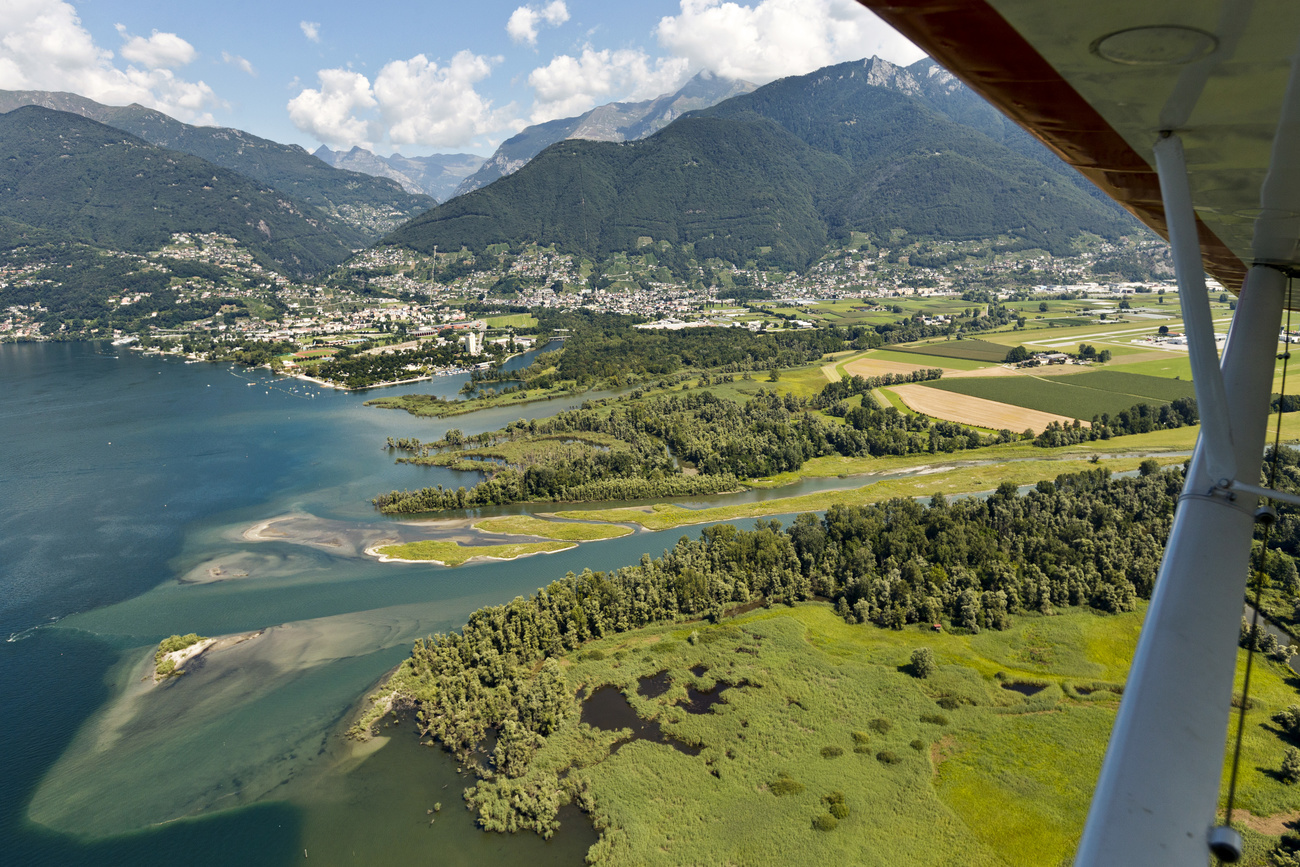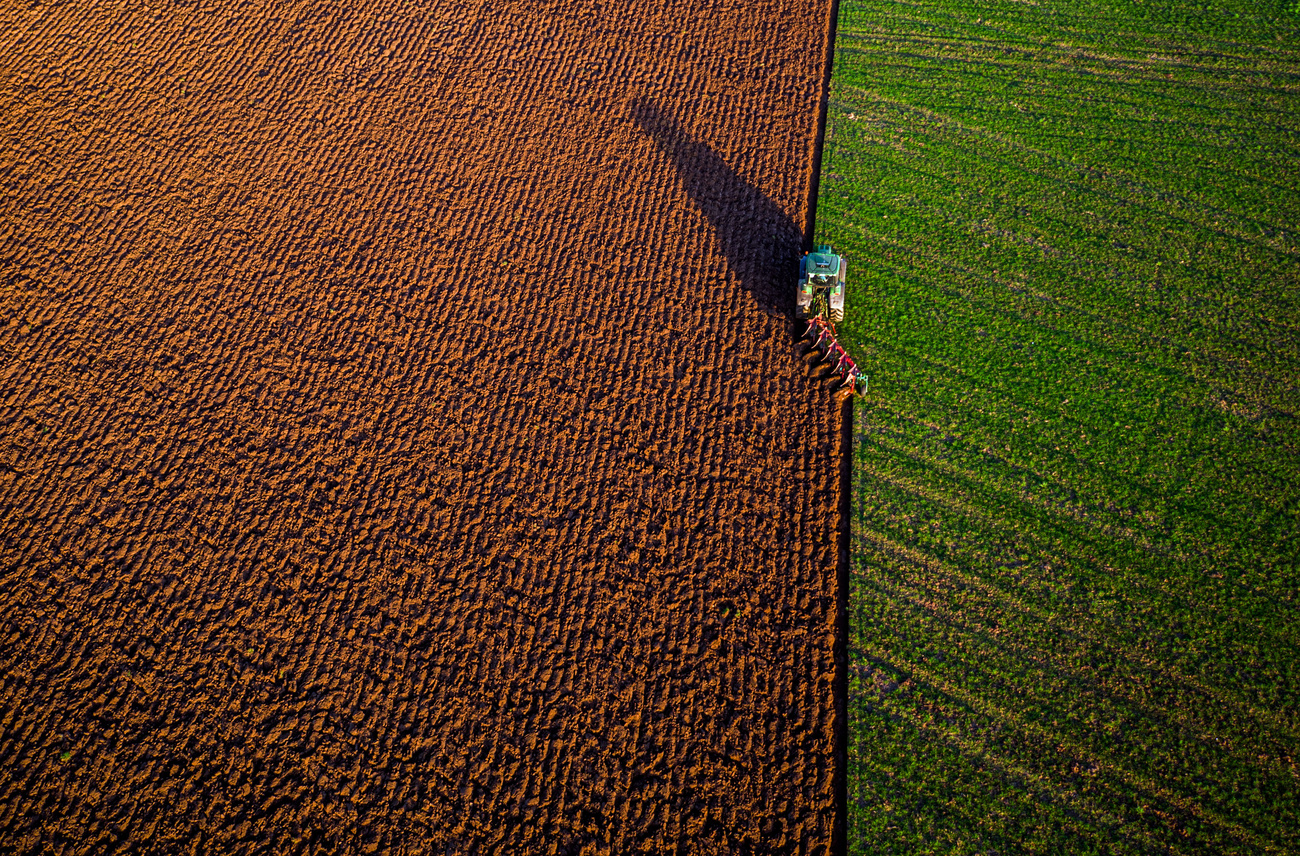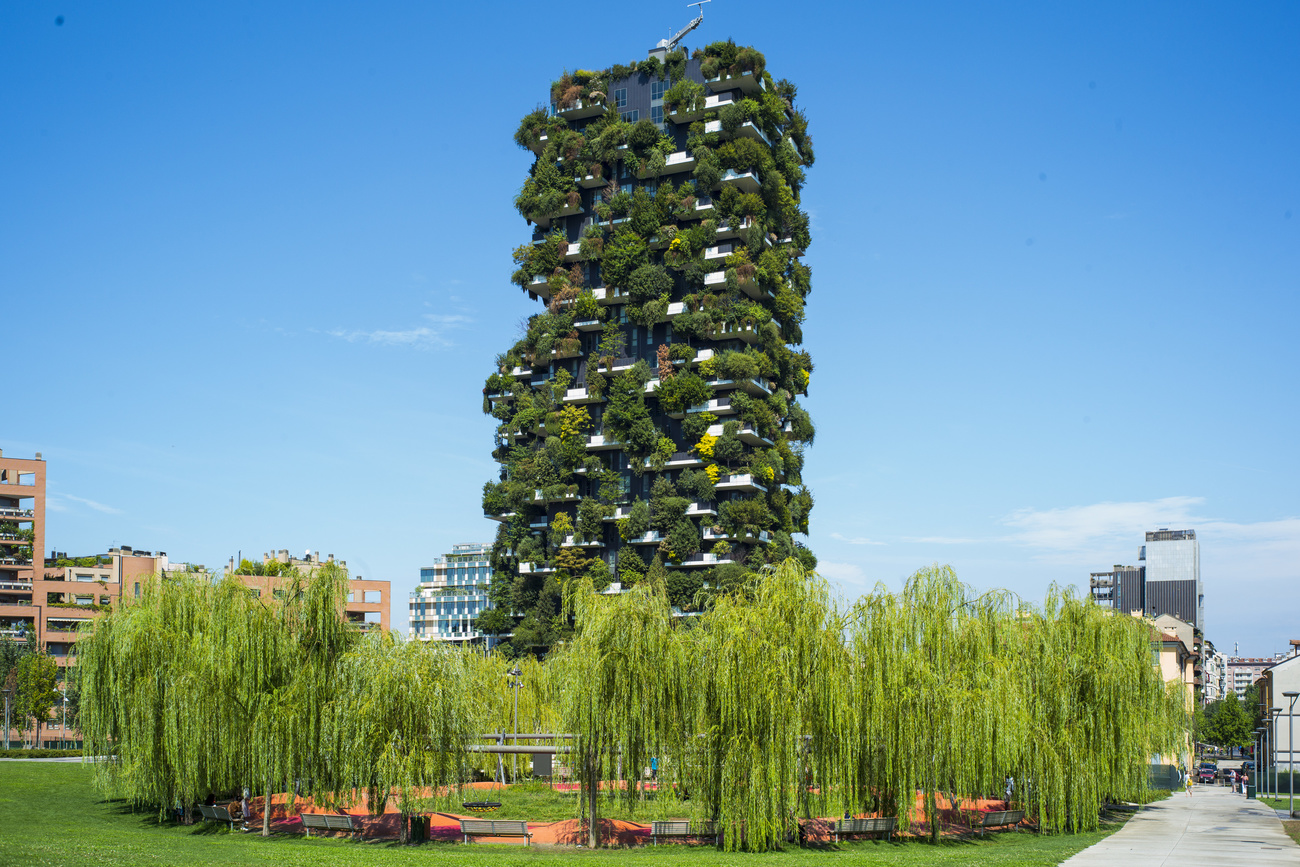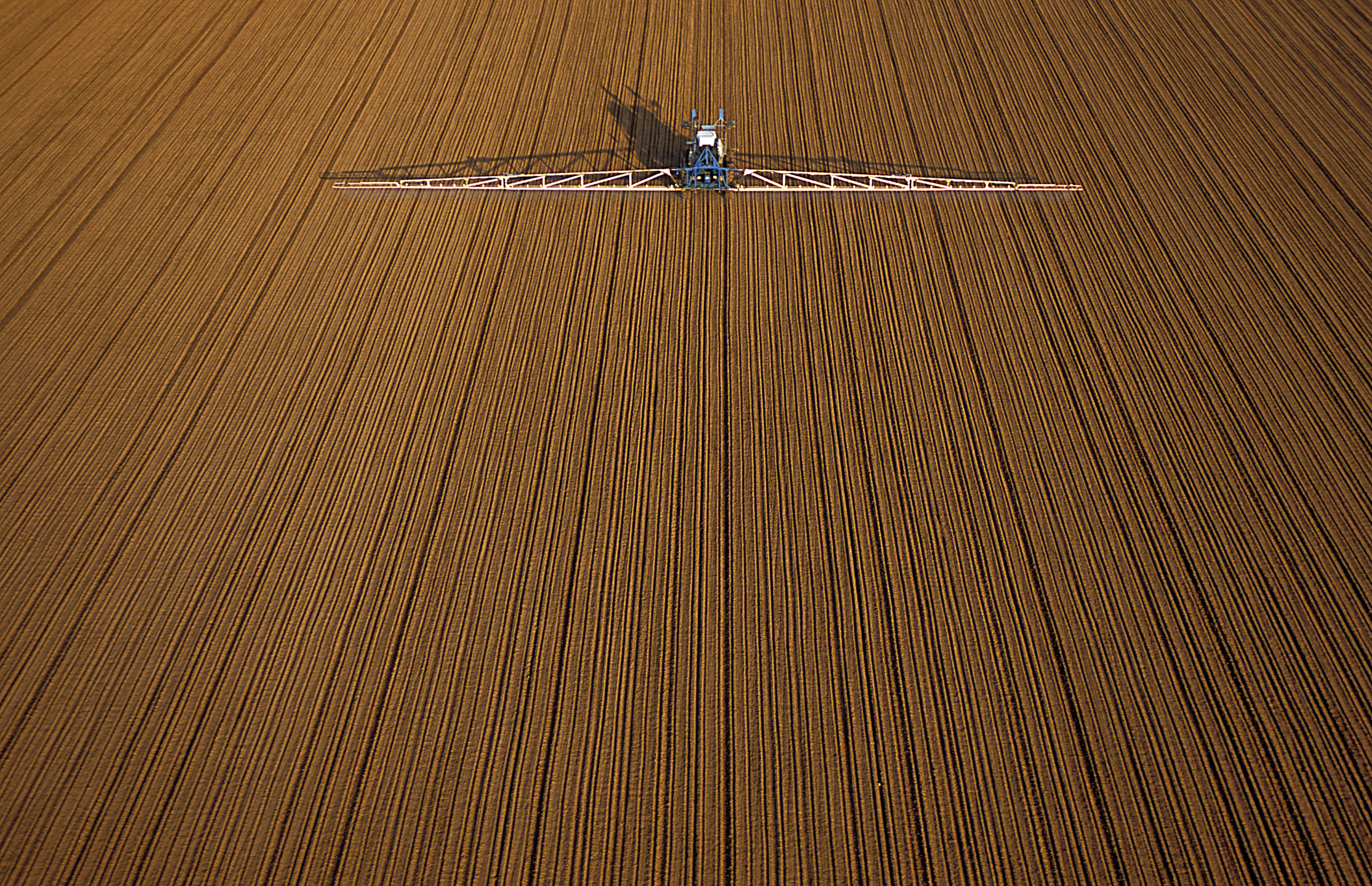What animals and plants do you no longer see where you live? What can be done?
Biodiversity is disappearing due to human activity and climate change. Maybe you’re noticing the fallout where you live – the butterflies are gone, or you can’t hear the lark’s song anymore.
What are you doing in your own small way to prevent the disappearance of fauna and flora? What do you think should be done at the political level? Or what species do you miss?
For example, this scientist we met at the World Biodiversity Forum in Davos misses the eagle owls he used to see as a youth in India.
From the article The Swiss Alps are beautiful, but are they biodiverse?
Look around and in the city of Bulle how the asphalt, the cement, has devoured an old urban landscape that was still breathing with houses surrounded by gardens. An architectural disaster, buildings still empty, disappearance of garden centers, trees, plants, green areas within the city. And the worst is yet to come, another factory on the altar of "development" and jobs.
As long as the real estate business continues to impose itself, even the old villages of the Gruyère are devoured by the real estate fever.
Those in power have not yet understood that we are heading for disaster.
Regardez autour et dans la ville de Bulle comment le bitume, le ciment, a dévoré un vieux paysage urbanistique qui respirait encore avec des maisons entourées de jardins. Un désastre architectural, des buildings toujours vides, disparition des centres de jardinerie, des arbres, des plantes, des zones verdoyantes intra urbaines. Et le pire est à venir, encore une usine sur l'autel du "développement" et des emplois.
Tant que l'affairisme immobilier continuera à s'imposer, même les anciens villages de la Gruyère sont dévorés par la fièvre immobilière.
Les gouvernants n'ont pas encore compris que nous courons à la catastrophe.
I have a small garden within the City limit of Luzern. When I moved here 10 years ago, the entire open area of the garden was covered in lawn grass which offers nothing in terms of biodiversity.
As an Urban Forester and a Consulting Arborist, I was immediately concerned about the sterility of this part of the garden and decided to stop mowing which allows wild plants to return. The garden's open area of today is filled with pollinators - bees, butterflies, moths, flies - as well as a burgeoning bird population - all supported by the diversity of plants and the varied habitats within the garden so that each can find their niche.
These Gartenheim houses were constructed at the end of WWII and, at that time, the original Buchenwald soil was not removed from the gardens. That soil is the foundation for the vast number of woody plants that populate the garden, providing forage and shelter from the surrounding urbanity. My goal was to create an oasis - a safe haven for insects, invertebrates, birds, hedgehogs, etc. and the soil organism is what is supporting all that biodiversity.
LET THE WOLVES LIVE!!!
LASCIATE VIVERE I LUPI!!!
I belong to a megadiverse country with the most species per square kilometer. I live very close to the last mangrove 'plume' of my city Guayaquil, and I have witnessed a constant loss of birds, fish and animals of the dry forest behind my neighborhood. In my childhood I enjoyed seeing lots of songbirds, herons, egrets, parakeets, parakeets and many more, and urban fauna such as iguanas, squirrels, small foxes and opossums, etc. First it was the urban expansion, then the contamination by the installation of industries around the mangrove, also by the domestic waste of the houses settled in its banks and in conclusion all the factors are anthrogenic, that is to say, by the man. We are the main predators of the nature that feeds us and provides us with everything we need to exist and it is unfortunate how we go straight to the destruction of these species and therefore of our own.
Pertenezco a un país megadiverso con la mayor cantidad de especies por kilómetro cuadrado. Vivo muy cerca del último 'penacho' de manglar de mi ciudad Guayaquil, y he sido testigo de una pérdida constante de aves, peces y animales propios del bosque seco atrás de mi barrio. En mi niñez disfruté de ver cantidad de aves cantoras, garzas, garzetas, periquitos y muchos más, y de fauna urbana como iguanas, ardillas, pequeños zorros y zarigueyas, etc. Primero fue la expansión urbana, luego la contaminación por la instalación de Industrias alrededor del manglar, también por los desechos domésticos de las casas asentadas en sus riberas y en conclusión todos los factores son antrogénicos, es decir, por el hombre. Somos los principales depredadores de la naturaleza que nos alimenta y nos provee de todo lo necesario para que existamos y es lamentable como vamos directo a la destrucción de estas especies y por ende de la propia.
Whenever/wherever possible, I BOYCOTT the polluters - small and large.
Golden goldfinch was part of the environment here where I live but in the last ten years we no longer can see them nor hear their beautiful singing due to the excessive hunt, people hunt them because of their beautiful colors and their ability to learn to sing, the authorities here seem careless about it, they should bring them back and protect them
I must say it is not only climate change. Because the people had always taken no consideration for the animals etc. has taken there will also change nothing.it hedgehogs are run over on the road before my eyes. The man could have stopped. Someone gives exrta gas when a cat on the road is. That already belongs to the
Destruction of living beings. What is that with the climate change people always make everything broken.
Ich muss ja sagen es ist ja nicht nur der Klimawandel. Denn die Menschen hatten schon immer keine Rücksicht auf die Tiere genommen usw. genommen hat wird sich da auch nichts ändern.Es werden Igel auf der Strasse vor meinen Augen überfahren. Der Mann hätte anhalten können. Jemand gibt exrta Gas wenn eine Katze auf der Stasse ist. Das gehört ja auch schon zur
Vernichtung von Lebewesen. Was soll das mit der Klimaänderung die Menschen machen ja immer alles kaputt .
Fireflies, once on the Bre in the evening I used to see sometimes even in the paths between ruvigliana and Aldesago.
Lucciole, un tempo sul Bre la sera ne vedevo alle volte persino nei sentieri tra ruvigliana ed Aldesago.
I like the sea. At present I am living near the beach in Lombok, Indonesia. I lived for 3 years in the Caribbean, visited Seychelles, Mauritius among other sea side locations. Now on my Lombok beach the quantity of fish is disappointing. I hardly come across a fish during my daily swims. Watching the local fishermen come back empty handed very often is also disappointing. Overfishing and climate change, I suppose. sad.
I live in Edinburgh but grew up in the countryside.In childhood my hobbies included birdwatching, keeping log books on the number of birds spotted and I enjoyed drawing an abundance of wild flowers there was always wild meadows near our house non existent now. Wild birds were in abundance along with wild flowers. Sadly over decades even in Edinburgh one no longer sees sparrows or any other wild birds. Now in Edinburgh there are copious numbers of seagulls scavenging on urban food scraps is that a legacy of a depleted food source in the sea? Domestic cats also are predatory and are a cause of the demise of birdlife in Edinburgh. In my lifetime living or walking in the countryside over all these years sadly agricultural land is so clinical there is an eeriness of silence when the air would have been filled with birdsong. Occasionally I have observed the odd fox in Edinburgh driven into towns due to the demise of the greenbelt and even more houses being built destroying our countryside idyll.
A lot of butterflies, birds and insects which I had never seen before have gone from our garden, which used to be a little Paradise, because they have cut down all the trees, and removed shrubs, stunning rose bushes and most of all the other beautiful flowers. The young no longer seem to want all the work and just want grass until they realise that needs a lot of care too. Now the grassy areas have given away mainly to weeds!
That sounds really sad -- especially the removal of healthy rose bushes, which tend to be expensive, too. Is this in Switzerland or elsewhere? Who does this property belong to, and have you talked to the owner about it?
It might be worth trying to form a community garden group that could replant the area. It would be less work for the property owner, and more variety for everyone who loves gardens. Please let us know what happens.
In Switzerland. Lovely ideas but sadly it’s not open to discussion. We are 50 residents and some have expressed their dissatisfaction. I enjoyed a private patio shaded by trees and now I am completely overlooked by two large apartment blocks which are also not a very attractive view.
Such a pity -- am really sorry to hear it.
As an Englishman living in the Geneva area I like many people have fallen in love with the Swiss scenery whether it is the high mountains of the Alps or the Jura, the plateau region and the lakes. In part the love is due to the sense of order and tidiness that shows of the Swiss countryside so well. But this tidiness is also a source of despair when you read about the decline of both flora and fauna in Switzerland and the increasing long list of species at risk.
I would highlight several factors that could help to address the issue of biodiversity loss. The 1st one would be for Swiss home owners to start thinking about how they can encourage wildlife in their gardens. Why does nearly every home owner plant non native hedging species such as Leylandii which creates almost a sterile environment for wildlife? Why not use native Swiss plants in a mixed hedge that provides different habitats and different food sources for both insects, birds and mammals. There is also a tendency to manicure hedges, trees, shrubs which may fit the need for tidiness, but do little for the wildlife. Leave some trees, shrubs to grow to provide a welcoming environment for wildlife. People love to cut their lawns which I understand, but why not leave some of the lawn unmown during the season and you will be surprised at the diversity of the flora from broad-leaved plants, grasses etc that provides a rich supply of food and habitat for wildlife and colour and interest for the owner.
These comments can also be relevant to Communes, towns etc who also tend to plant non native plants on public land. A lot of this planting is not a conducive environment for wildlife. What is the use of planting a tree or a shrub that does not provide food, shelter or protection to native wildlife?
My 2nd point is to question why does Switzerland have so few hedges? Hedges provide the travel network for animals, birds etc to use moving from one area to another. The more you isolate wildlife areas the more difficult it is for wildlife to move from area to area and the more at risk it becomes. Hedges provide sources of food, they provide, shelter, nesting sites, burrows etc . They are also beneficial to farming in that they slow wind speed in exposed areas which will help crop establishment and even yields. Hedges can be managed in a way that encourages wildlife such as only cutting one side a year or only cutting at certain times of the year.
It is good to see so many initiatives aimed at trying to arrest the decline and to encourage the protection of flora and fauna in Switzerland, As it is with climate change, we should not rely upon Governments and companies to do everything, By changing some of our approaches in our gardens and fields we can make a significant impact
Not a lot of people want wildlife in their garden which can move to their house. It attracts unnecessary insects which bites the family and their pets. My balcony faces the farm feeld and it is a disaster with insects every time they do anything with the field, I would not recomend also because of all the night noise of the wildlife. We actually had to use Leylandii in a huge pots to somehow scare the insects of out apartment.
I propose to inreach the forest wildlife rather than wildlife in towns.
Lots of good inputs there, and I like your description of hedges as a "travel network" for wildlife. Do you also write letters to governments, companies, newspapers, etc.? I'll bet these have an impact, too. And as you say, it's not just the responsibility of those in power -- everyone can help foster biodiversity.
On my farm in Portugal, there used to be no birds. Not sure why, but since we arrived four years ago, we have planted trees and started a vegetable garden, set up water reservoirs and channels, and slowly we've witnessed a return of biodiversity including birds and wild flowers and more.
Individually, I think awareness that we can all make a difference is key. Planting trees, growing wildflowers for the pollinators, it all matters.
Politically, I think monocultures should be discouraged and small-scale farming supported with a focus on produce as organic as possible (which diversity in production supports).
Thank you for sharing your experience with us, and congratulations! Indeed, there are many ways to help biodiversity. Even just not cutting the grass in a corner of the garden can be helpful.
The scientific world, and beyond, is looking forward to the UN COP15 scheduled to take place in Montreal in December. The outcome is expected to be an agreement similar to the Paris climate agreement, but whose goal is to safeguard biodiversity.
Grazie per aver condiviso con noi la sua esperienza, e complimenti! In effetti, ci sono molti modi per aiutare la biodiversità. Anche solo non tagliare l'erba in un angolo del giardino può essere utile.
Il mondo scientifico, e non solo, attende con impazienza la COP15 delle Nazioni Unite in programma a Montreal in dicembre. Il risultato dovrebbe essere un accordo simile a quello di Parigi sul clima, ma il cui obiettivo è la salvaguardia della biodiversità.
All the problems of the earth come from double reproduction. If the situation continues as it is without wars that reduce the number of people, the following is greater.
كل مشاكل الارض مصدرها الإنجاب المضاعف، وإذا استمر الحال كما هو دون حروب تقلص من تعداد الناس فالآتي أعظم .
It is very difficult to do something! As long as attacks on the environment continue and the human sense of responsibility towards creatures is still futile! Once the human conscience admits its attacks on everything that exists on this planet that is dependent on humans, then some damage can be repaired.
صعب جدا فعل شيء ! لطالما الاعتداء على البيئة مستمر والشعور الانساني بالمسؤولية تجاه المخلوقات مازال عقيما! ومتى ما اعترف الوجدان الانساني باعتداءاته على كل ما هو موجود على هذه الكوكب الرهين بيد البشر حينها يُمكن إصلاح بعض الأضرار .
I have been missing the song of the skylark and the redstart for a few years, as well as the gray flycatcher. Also the ringing of the midwife toad.
Skylark and Redstart have a very hard time in our heavily used agricultural economy, because there is hardly any patchy ground cover left (small "ruderal areas").
But it must also be said that through the efforts of individuals, nature conservation organizations and also farmers, some progress has been made.
A brown hare can be observed now and then. Also stonechat and red-backed shrike are breeding more in our region again.
I also have the hope that the Little Owl, because of the strong efforts will settle again.
Ich vermisse seit ein paar Jahren den Gesang der Feldlerche und des Gartenrotschwanzes, sowie den Grauschnäpper. Ebenfalls das Geläut der Geburtshelferkröte.
Feldlerche und Gartenrotschwanz haben in unserer stark genutzten Agrarwirtschaft einen sehr schweren Stand, da kaum noch lückenhafte Bodenbedeckung vorkommt (kleine "Ruderalflächen").
Aber es muss auch gesagt werden, dass durch Bemühungen von Einzelpersonen, Naturschutzorganisationen und auch Landwirten einiges erreicht werden konnte.
Es kann hin und wieder ein Feldhase beobachtet werden. Auch Schwarzkehlchen und Neuntöter brüten wieder vermehrt in unserer Region.
Ich habe auch die Hoffnung, dass sich der Steinkauz, wegen der starken Bemühungen doch wieder ansiedeln wird.
Thanks for your interesting input! What part of the world do you live in?
It's good to hear that you've noticed some positive changes lately and that small actions by individuals seem to be making a difference.






Join the conversation!